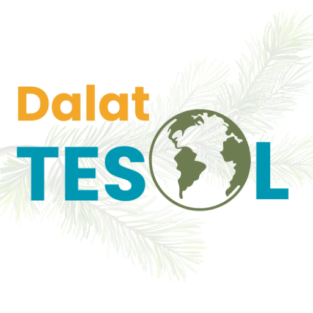By Dalat TESOL
Empowering emerging scholars in language education
📌 Introduction
The research question is the heart of your entire study. A clear, focused question will guide your design, data collection, analysis, and ultimately your contributions to the field.
But for many new researchers in TESOL or Applied Linguistics, crafting a good research question is surprisingly hard. You may wonder:
- Is my question too broad or too narrow?
- Is it researchable?
- Does it sound academic enough?
In this guide, we’ll walk you through how to write clear, meaningful, and researchable questions, with practical examples tailored to TESOL contexts.
🔍 What Is a Research Question?
A research question defines what you want to find out through your study. It:
- Focuses your investigation
- Sets boundaries
- Reflects a clear purpose
- Often comes from a gap in the literature
A well-written question should be specific, answerable, and aligned with your research design.
🧭 Characteristics of a Good Research Question
A strong research question in TESOL should be:
| Criterion | Explanation |
|---|---|
| Clear | Avoids jargon or ambiguity |
| Focused | Targets a manageable topic |
| Researchable | Can be answered with data, not just opinion |
| Ethical | Avoids harm, respects participants |
| Relevant | Connects to theory, practice, or a known gap |
🧠 Types of Research Questions in TESOL
Depending on your research purpose, your question may be:
1. Descriptive
What is happening?
- What strategies do Vietnamese EFL teachers use to teach pronunciation?
2. Comparative
How do two or more things differ?
- How does motivation differ between students who use AI tools and those who don’t?
3. Correlational
Is there a relationship?
- Is there a correlation between self-efficacy and willingness to communicate in English?
4. Causal / Experimental
Does X affect Y?
- Does using ChatGPT improve students’ coherence in IELTS writing?
5. Exploratory / Qualitative
How or why does something happen?
- How do university EFL students perceive the use of AI tools in writing instruction?
🛠️ How to Write Your Own Research Question
Step 1: Start from a real issue or curiosity
“I’m interested in how students use AI tools when writing essays.”
Step 2: Narrow it down
→ What kind of students?
→ What type of writing?
→ What aspect of AI use?
→ Which skill (e.g., vocabulary, coherence)?
Step 3: Frame it as a question
“How do Vietnamese EFL university students use AI tools to enhance coherence in academic writing?”
That’s clear, focused, and researchable.
✍️ Sample Research Questions in TESOL
Here are some strong examples tailored to common themes:
| Topic | Sample Research Question |
|---|---|
| AI in Education | How do students evaluate the usefulness of ChatGPT for IELTS writing tasks? |
| Classroom Practice | What challenges do high school EFL teachers face when implementing project-based learning? |
| Learner Beliefs | What are students’ attitudes toward using L1 in English-only classrooms? |
| Technology Integration | Does mobile-assisted vocabulary learning improve retention among beginner learners? |
| Speaking Development | What is the relationship between AI self-efficacy and willingness to speak in English? |
💬 Common Pitfalls to Avoid
🚫 Too broad:
“What are the problems in English language teaching in Vietnam?”
→ Refine: Which level? Which issue? Which region?
🚫 Unresearchable:
“Why do some students not like English?”
→ Focus on measurable factors like motivation, anxiety, or instructional experience.
🚫 Too complex for one study:
“How does AI affect learning, engagement, and long-term outcomes?”
→ Break into smaller, more manageable questions.
🧾 BONUS: Research Question Templates
Here are a few starter templates:
- What is the impact of [intervention] on [skill] among [population] in [context]?
- How do [group] perceive/experience [phenomenon] in [setting]?
- Is there a relationship between [variable 1] and [variable 2] among [group]?
📝 Final Thoughts
Your research question is not just a formality — it shapes the direction, relevance, and coherence of your study.
Take time to explore the literature, reflect on your interests, and consult your peers or supervisors. And remember: it’s okay to revise your question as your understanding deepens.
📣 Need feedback on your research question draft?
👉 Email us at dalattesol@gmail.com or post anonymously via our upcoming “Question Clinic” series.
—
🌿 Dalat TESOL – Chia sẻ kiến thức giảng dạy, nghiên cứu khoa học và cơ hội xuất bản
